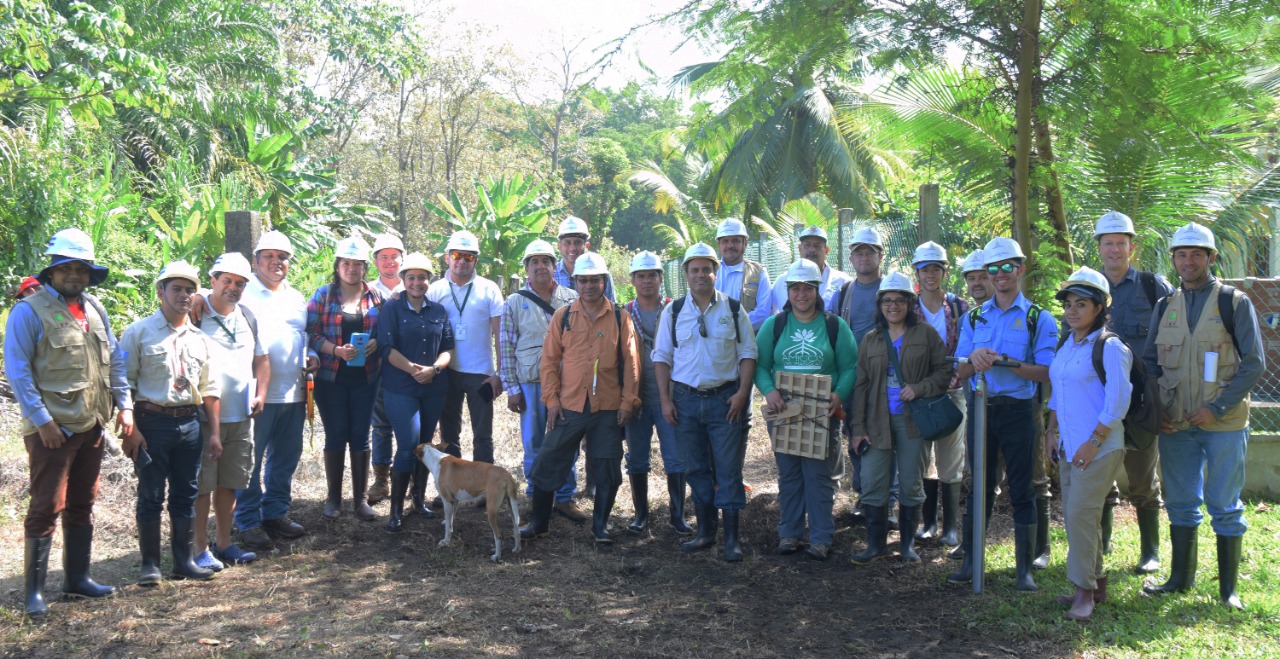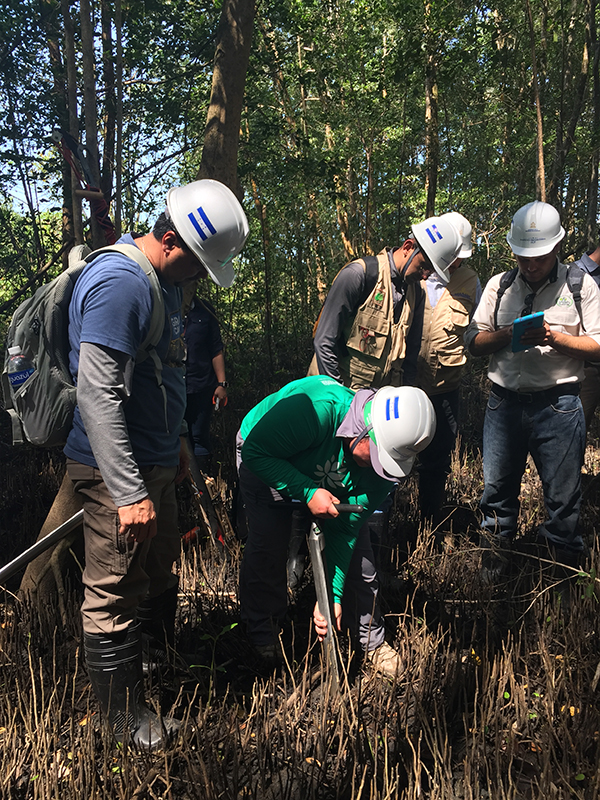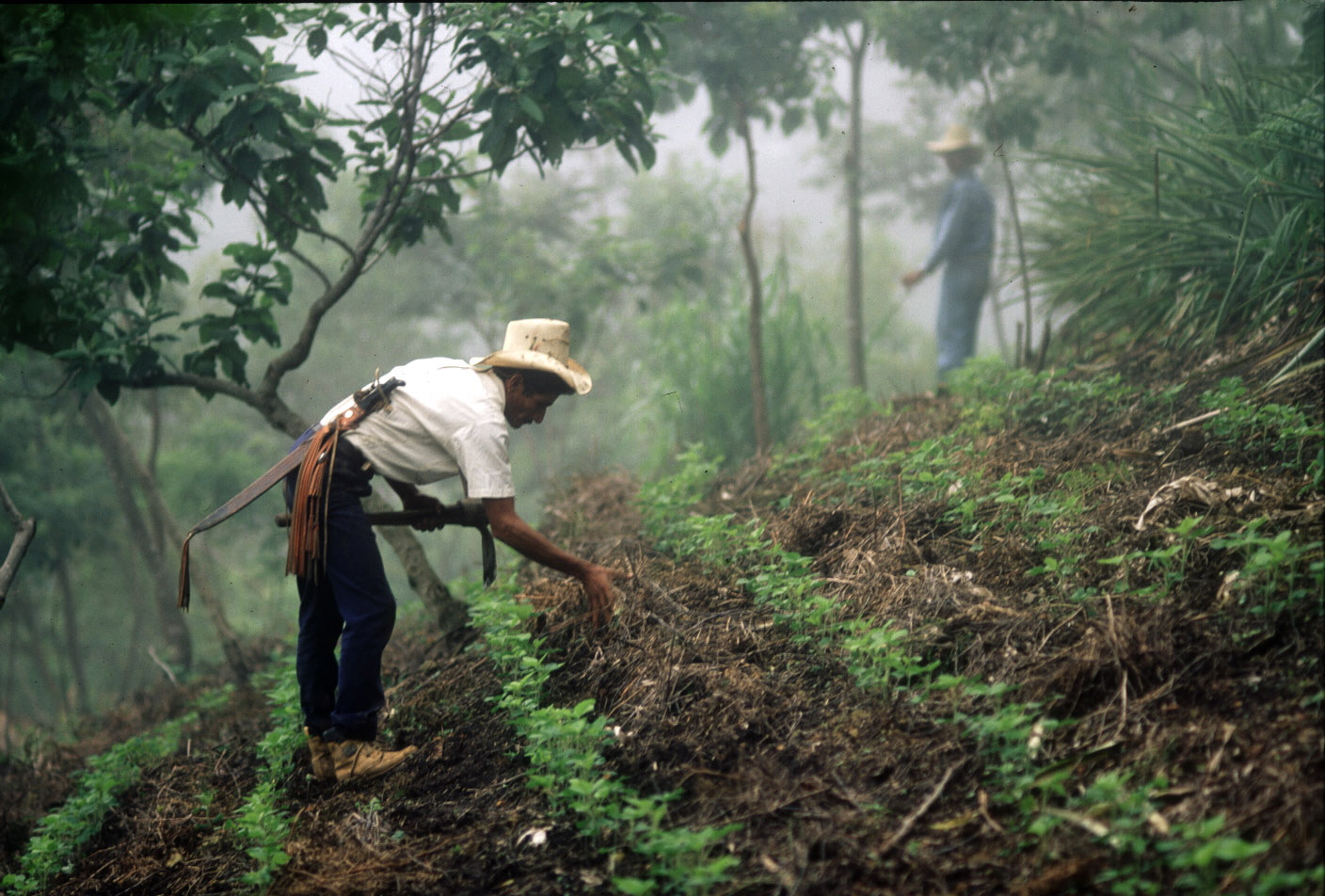Situated in the heart of Central America and surrounded by high tropical mountains, Honduras has it all – rainforests, cloud forests, mangroves, dry forest and mountain ranges with pine and oak trees. According to FAO’s Global Forest Resources Assessment 2015, forests cover 41% of the country. Dedicated to protecting its diverse forested landscapes from the harsh effects of climate change, Honduras became a pioneer in the development of forest inventories and it stands ready to share its lessons learned with other countries in Central America.
What is the National Forest Inventory?
The National Forest Inventory (NFI) is a systematic collection of data designed to identify the extent and quality of forest stands and their associated management. This includes the collection of bio-physical data that is shared nationally and internationally, as well as socio-economic information that can help in understanding the anthropogenic impact of forests and their role in sustainable livelihoods. NFIs are a key information source for modern approaches to forest management and associated planning processes. It is used by countries to measure, report and verify the amount of greenhouse gas emissions due to deforestation and forest degradation, as well as document progress on Sustainable Development Goals (SDGs), Nationally Determined Contributions (NDCs) and other national and international processes.

NFI Developments in Honduras
Since launching the first cycle of NFI activities in 2005, with technical support from Food and Agriculture Organization of the United Nations (FAO), the United States Forest Service and the UN-REDD Programme, Honduras has implemented forest inventory planning, field data collection, data entry, quality control and assurance, data archiving and sharing, as well as data analysis, including integration with remote sensing for biomass modelling, documentation, reporting, communication and dissemination. In 2017, Honduras entered its third NFI cycle, improving measurements for data collection by applying the latest technologies such as mobile devices.

In February, 2019, Honduras held a South-South exchange workshop with forester engineers from Guatemala and Costa Rica. This workshop was facilitated by FAO, with the financial support of the United States Forest Service through the SilvaCarbon Program and the Korea International Cooperation Agency (KOICA). The event focused on sharing technical experiences in the development of methodologies and processes required for the National Forest Inventory.
"It is important to know what and how many resources we have in our forests,” said Francisco Escalante, the Deputy Minister of the Forest Conservation Institute (ICF) of Honduras. “The NFI allows each country to monitor key aspects of its forest resources which facilitates decision-making on activities to be carried out in the field such as forest restoration."
Escalante added that he was pleased with the opportunity to share the experiences accumulated since 2005, over the three cycles of NFI measurement. He also noted the importance of facilitating regional knowledge exchanges between countries.
"We know that Honduras has implemented two forest inventory cycles and our intention is to learn from their experiences for use in Costa Rica so that our methods are effective and achieve the defined objectives,” said Henry Ramírez of the National System of Conservation Areas (SINAC) of Costa Rica.
To learn more about new measurement techniques, participants visited the Omoa mangrove forests in the area of Cortés and the oak forests in the area of Santa Bárbara where they could witness important advances in protecting various vulnerable ecosystems, including mangroves.
"In the face population growth and human actions that create pressure and damage to forests, governments need to take measures towards the rational use of forest resources," said Gilberto Cifuentes of the National Forest Institute (INAB) of Guatemala.
"Honduras is a pioneer in ensuring self-sustainability in the long term," said Carla Ramirez, FAO National Forest Inventory Advisor for Latin-America and the Caribbean. "We hope that Guatemala and Costa Rica can replicate the experiences of institutionalizing the data collection process and progressively depend less on international cooperation.”
Useful links:
-
About FAO’s work on REDD+: http://www.fao.org/redd/en/
-
About REDD+ and NFMS: http://www.fao.org/redd/areas-of-work/national-forest-monitoring-system/en/
-
About National Forest Conservation Institute from Honduras: http://www.icf.gob.gt About National Forest Insitute from Guatemala: http://www.inab.gob.gt
-
About National System of Conservation Areas from Costa Rica: http://www.sinac.go.cr/ES/Paginas/default.aspx




